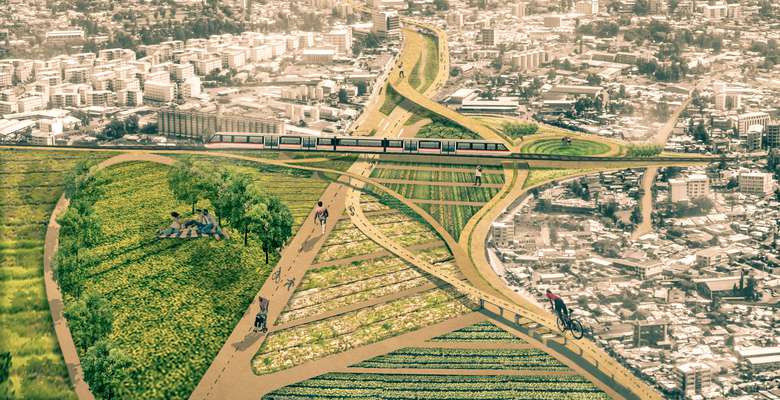Idea by
Kweku Addo-Atuah
Call for ideas 2021
Constructed Liberation:
Constructed Liberation:

- Systemic changes
To properly remind the historical legacies of colonization, with particular regard to its spatial and infrastructural implications in the Global North and Global South. The essay will examine these legacies, including redlined neighborhoods and Indigenous reservations, exploring how the partitioning of resources and investments have had a direct consequence on the stark socioeconomic trajectory and environmental protections of differing population groups.
It alerts urbanists' (architects/landscape architects/urban planners) role in upholding socio-spatially and digitally fragmented societies through planning and design policies+interventions that effectively undermine their mandate to preserve public health, safety and welfare for all. This role is exacerbated by the COVID-19 pandemic that highlights these socio-spatial infractions and yet, presents a wonderful opportunity to restructure the world's cities in a framework absent of neocolonial, racial and economic stratifications.
Constructed Liberation:
Constructed Liberation:

- Systemic changes
To properly remind the historical legacies of colonization, with particular regard to its spatial and infrastructural implications in the Global North and Global South. The essay will examine these legacies, including redlined neighborhoods and Indigenous reservations, exploring how the partitioning of resources and investments have had a direct consequence on the stark socioeconomic trajectory and environmental protections of differing population groups.
It alerts urbanists' (architects/landscape architects/urban planners) role in upholding socio-spatially and digitally fragmented societies through planning and design policies+interventions that effectively undermine their mandate to preserve public health, safety and welfare for all. This role is exacerbated by the COVID-19 pandemic that highlights these socio-spatial infractions and yet, presents a wonderful opportunity to restructure the world's cities in a framework absent of neocolonial, racial and economic stratifications.